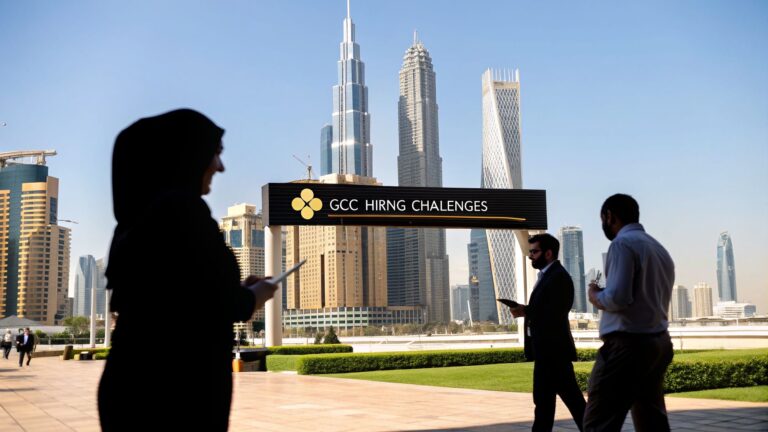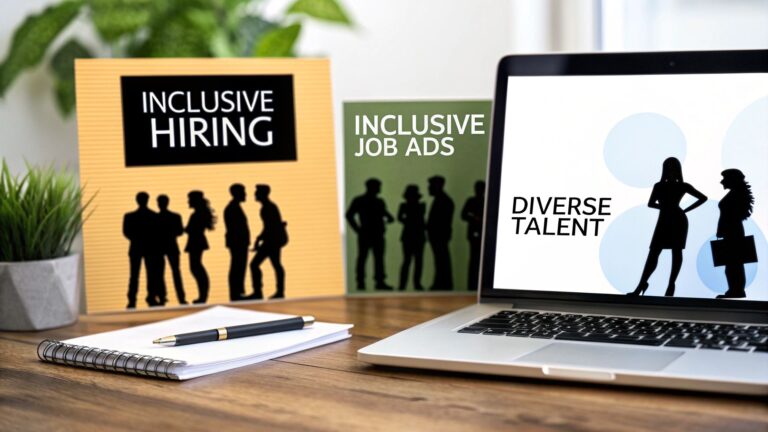An HR Generalist plays a key role in keeping a company’s people and processes running smoothly. From hiring and onboarding to employee engagement and policy management, they handle many important HR tasks that support both employees and the business.
Whether you’re planning to become an HR Generalist, writing a job description, or hiring for this position, it’s important to clearly understand the HR Generalist roles and responsibilities to build a productive and positive workplace.
In this guide, we’ll break down everything you need to know, what an HR Generalist does every day, the must-have skills, a ready-to-use job description template, and practical tips to grow in this career. You’ll also find a downloadable checklist to help you get started right away. Let’s explore!
What Is an HR Generalist?
An HR Generalist is a well-rounded human resources professional responsible for managing a broad range of HR functions across the employee lifecycle. Unlike HR Specialists who focus on one specific area like payroll, training, or recruitment, generalists wear many hats.

HR Generalists are often the go-to HR point of contact in small to mid-sized companies, especially when there’s only one or a few people in the HR team.
While HR Recruiters focus mainly on sourcing and hiring talent, and HR Executives typically support daily admin tasks, HR Generalists take a more holistic approach. They balance operational duties and strategic support, handling everything from hiring and onboarding to employee relations, compliance, performance reviews, and benefits management.
Here’s a snapshot of what an HR Generalist handles on a daily basis:
- Recruitment & Onboarding: Writing job descriptions, screening candidates, scheduling interviews, and helping new hires settle in.
- Employee Relations: Addressing grievances, supporting team morale, and maintaining workplace harmony.
- HR Policy & Compliance: Ensuring the company follows labor laws, company policies, and ethical practices.
- Benefits & Payroll Coordination: Assisting with salary structures, health benefits, and employee perks.
- Performance Management: Helping managers run appraisals, track goals, and improve employee development.
“HR Generalists are the glue that holds organizations together, balancing people and policy with care and consistency.”- — Sarah Thompson, SHRM-Certified HR Consultant
In essence, HR Generalists ensure that both employees and business goals are well taken care of, making them a vital part of any successful organization.
HR Generalist Roles and Responsibilities
An HR Generalist manages core human resources activities such as recruitment, onboarding, employee relations, compliance, performance management, and benefits administration. They act as a bridge between employees and leadership, ensuring smooth HR operations and a positive work culture.
Here’s a detailed look at the key responsibilities and daily duties of an HR Generalist:
1. Talent Acquisition and Recruitment
One of the primary HR Generalist duties is supporting or leading the hiring process. This includes writing job descriptions, posting openings, screening resumes, coordinating interviews, and assisting with selection decisions with combined efforts of HR recruiter. While recruiters may focus solely on candidate sourcing, HR Generalists handle the full hiring cycle.
Key responsibilities:
- Posting job ads across platforms
- Sourcing and screening applicants
- Coordinating interview schedules with hiring managers
- Conducting initial interviews
- Creating offer letters and guiding salary negotiations
- Running background and reference checks
- Managing the onboarding process: documentation, orientation, training plans
- Collaborating with immigration teams for visa processing when needed
Why it matters: A well-structured hiring process and organization-based talent acquisition strategies ensures the organization attracts the right talent efficiently.
2. Employee Administration and Support
They maintain accurate employee records and serve as the first line of support for staff queries related to contracts, leaves, company policies, and internal processes. This role is somewhat similar to HR admin roles and responsibilities, but HR generalists kind of overlook various tasks.
Key responsibilities:
- Updating employee information in HRIS systems
- Managing employee documentation and file audits
- Responding to questions about policies, benefits, and paperwork
- Processing leaves of absence (maternity, medical, unpaid, etc.)
- Ensuring compliance with labor laws related to time off and documentation
3. Employee Onboarding and Offboarding
HR Generalists ensure a smooth transition for new employees through onboarding programs, document collection, orientation, and induction. Similarly, they manage the exit process for departing employees, including final settlements and exit interviews.
Why it matters: A strong onboarding experience via onboarding checklist templates boosts employee engagement, while respectful offboarding preserves employer branding.
4. Employee Relations and Engagement
They act as the first point of contact for employee. They resolve employee conflicts, mediate sensitive situations, and ensure respectful, inclusive, and legally compliant work environments.
Key responsibilities:
- Advising managers on employee relations issues
- Handling discrimination and harassment investigations
- Managing misconduct investigations and disciplinary actions
- Supporting managers in terminations (ensuring proper process and compliance)
- Conducting exit interviews
- Managing union relationships and collective bargaining (if applicable)
Why it matters: Strong employee relations reduce attrition and promote a healthy, collaborative work environment.
4. HR Policy Implementation
HR Generalists implement and communicate company policies, code of conduct, and employee handbooks. They ensure employees are well-informed about company procedures and disciplinary practices.
Why it matters: Clear policies prevent misunderstandings and support legal compliance.
5. Performance Management Support
They assist in developing performance appraisal frameworks, scheduling reviews, maintaining appraisal records. They also coordinate performance reviews and help managers identify and support employee development through 180-degree feedback processes.
Key responsibilities:
- Implementing performance appraisal systems
- Assisting managers with goal-setting frameworks (OKRs/KPIs)
- Documenting performance improvement plans
- Facilitating career growth discussions and promotions
Why it matters: Ongoing performance tracking helps identify training needs and reward high performers.
6. Training and Development Coordination
While HR Specialists may design programs, HR Generalists often help identify skill gaps, schedule training sessions, and collect post-training feedback. They often design and execute employee training programs, especially in small companies where there is no dedicated L&D team.
Key responsibilities:
- Conducting training needs analysis
- Organizing orientation, compliance training, soft skills and leadership workshops
- Partnering with external trainers when necessary
- Measuring training effectiveness via surveys and feedback
Why it matters: Continuous learning leads to higher productivity and employee satisfaction.
7. Payroll and Benefits Administration
Although payroll processing may be outsourced, Generalists ensure timely data submission, leave tracking, and answer employee queries on pay, incentives, and benefits like health insurance or PF.
They help manage employee benefits, perks, and compensation policies, often serving as the go-to contact for all benefit-related queries.
Key responsibilities:
- Coordinating enrollment in health insurance, retirement plans, and wellness programs
- Answering employee queries about benefits
- Collaborating with vendors and brokers
- Benchmarking compensation and perks against industry standards
- Assisting in payroll inputs and incentive calculations
Why it matters: Accurate payroll and benefits build trust and reduce HR complaints.
Check out our blog on how to set-up bi-weekly payroll and transform your payment processes.
8. Legal Compliance and Record-Keeping
They ensure that all HR processes and records comply with local, state, and national employment laws.
Key responsibilities:
- Staying up to date with labor law changes
- Filing statutory returns (PF, ESI, Gratuity, etc.)
- Updating HR policies and employee handbooks
- Ensuring documentation for audits and inspections
Why it matters: Non-compliance can lead to legal penalties and reputational damage.
9. HR Data and Reporting
HR Generalists are responsible for updating HRMS software, generating monthly reports, tracking attrition rates, and analyzing workforce trends.
Why it matters: Data-driven HR decisions lead to better workforce planning, including workforce automation, segmentation, and analysing overall workforce analytics.
10. Supporting Organizational Culture
They play a key role in building and promoting a positive workplace culture by aligning HR strategies with business values and fostering inclusivity.
Why it matters: A strong culture improves employee retention and business outcomes.
11. Strategic HR Support (Optional but Increasingly Common)
Strategic HR support is a part of HRBP roles and responsibilities in large organizations. However, in smaller or fast-growing companies, HR Generalists may also contribute to strategic initiatives such as:
- Succession Planning: Identifying and preparing internal talent for future leadership roles
- Organizational Design: Assisting with role mapping, reporting structures, and team restructuring
- Internal Communications: Crafting HR messages, company-wide announcements, and change management communication
- Culture Building: Designing initiatives that align employee behavior with company values
Why this matters: As companies scale, HR Generalists who contribute strategically can shape the company’s long-term culture and talent strategy.
Must-Have HR Generalist Skills
To be a successful HR Generalist, you need more than just a passion for working with people. You need to combine technical knowledge, soft skills, and business awareness to support employees, solve problems, and help the organization grow.

Let’s explore each essential skill and understand why it matters:
1. Recruitment Expertise
As an HR Generalist, one of your key roles is to help the company hire the right people. A well-planned hiring process helps you find talented employees who are a good fit for your company, and stay longer. Poor hiring can lead to high turnover and unhappy teams. This means:
- Creating job descriptions that clearly define the role and attract the best candidates.
- Designing fair and inclusive hiring processes so that people from all backgrounds feel welcome to apply.
- Working with managers to understand what kind of person they’re looking for.
2. Communication Skills
Communication is at the heart of everything an HR Generalist does. Clear communication helps avoid misunderstandings, builds trust, and ensures that everyone knows what’s expected of them.
Whether you’re explaining leave policies or helping resolve a conflict, good communication makes all the difference. You need to:
- Speak confidently with employees, managers, and leadership.
- Write professional emails, policies, and internal announcements.
- Listen carefully and respond with empathy, especially during sensitive conversations.
3. HRIS Proficiency (HR Information Systems)
Modern HR work relies heavily on digital tools and software to keep track of employee information. Tools like People Strong HRMS, ADP, BambooHR, or PeopleSoft are commonly used.
You’ll use these systems to:
- Store and update employee data (like salaries, joining dates, and benefits).
- Generate reports for audits or performance reviews.
- Automate tasks like attendance tracking and payroll processing.
Being comfortable with HR software saves time, reduces errors, and helps you manage large amounts of data efficiently.
4. Employment Law Knowledge
Every HR Generalist must have a basic understanding of labor laws and regulations. These laws protect employees’ rights and help companies avoid legal trouble.
You should know about:
- Anti-discrimination laws (like the EEOC in the U.S.)
- Workplace safety rules (like OSHA)
- Rules about wages, working hours, leave policies, and employee termination
If a company doesn’t follow the law, it can face lawsuits or government penalties. HR Generalists ensure compliance and protect both the organization and its employees.
5. Emotional Intelligence (EQ)
Emotional Intelligence is the ability to understand and manage your own emotions and recognize and respond to others’ emotions. Since workplaces are full of people with different personalities and challenges, an HR Generalist with strong EQ can foster a more positive, supportive environment where people feel heard and respected.
In HR, this helps you:
- Handle conflicts calmly and fairly
- Support employees going through personal or professional issues
- Build stronger relationships at every level of the organization
6. Project Management Skills
An HR Generalist often juggles multiple responsibilities at once, such as:
- Running hiring campaigns while planning a training session
- Updating employee policies while managing appraisals
Without good project management, tasks can fall through the cracks or get delayed, leading to confusion and inefficiency. Thus, project management skills helps in:
- Organizing your work efficiently
- Meeting deadlines
- Coordinating with different departments and vendors
As the world of work changes, HR Generalists are expected to learn new skills that help them stay ahead of the curve. These are especially important in today’s digital, data-driven, and diverse workplaces.
7. Data Literacy
HR is no longer just about intuition, it’s about using data to make smarter decisions. Data helps you prove what’s working and what’s not. It also positions HR as a strategic partner, not just a support function.
This means:
- Reading HR reports (like turnover rates, time-to-hire, or engagement scores)
- Spotting patterns and using numbers to improve hiring, employee retention, and performance
- Presenting insights to leadership using charts or dashboards
8. Change Management
Organizations are constantly evolving, adopting new technologies, restructuring teams, or updating policies. Besides, people also often resist change. HR Generalists play a key role in making change smoother and less stressful, which leads to better outcomes for everyone.
HR Generalists often lead or support these transitions.
Change management in HR skills involve:
- Helping employees understand and accept change
- Communicating clearly about what’s changing and why
- Reducing resistance and offering training when needed
9. Diversity, Equity, and Inclusion (DEI)
Modern workplaces prioritize fairness and belonging and organizations that prioritize DEIB are proven to have better performance, creativity, and employee satisfaction. HR Generalists are at the frontline of building workplaces where everyone feels respected and valued.
As an HR Generalist, you help shape policies and practices that promote a more inclusive environment.
This includes:
- Creating bias-free hiring and promotion processes
- Supporting diverse employee groups and cultures
- Addressing discrimination and promoting equal opportunities
The best HR Generalists are those who can combine people skills with business sense, legal knowledge, and technological fluency.
HR Generalists Job Description
Looking for an all-round HR professional to support your organization’s people operations? This HR Generalist job description outlines the key responsibilities, qualifications, and skills needed to hire or become a successful HR Generalist in 2025.
Job Title: HR Generalist
Location: [City, State]
Department: Human Resources
Reports To: HR Manager / HR Director
Job Type: Full-time
Experience Level: Mid-Level (2–5 years)
Work Mode: [On-site/Hybrid/Remote]
Job Summary
We are seeking a proactive and well-rounded HR Generalist to join our growing team. This role plays a key part in fostering a positive workplace culture by managing day-to-day HR operations and employee lifecycle activities. From recruitment and onboarding to employee relations and compliance, the HR Generalist ensures smooth functioning of our people processes while contributing to strategic initiatives.
This is an excellent opportunity for an HR professional who thrives in a fast-paced, people-first environment and wants to make a tangible impact across multiple HR domains.
Key Responsibilities:
Talent Acquisition & Onboarding
- Manage end-to-end recruitment: job postings, sourcing, screening, interviewing, and selection.
- Coordinate onboarding processes including document collection, induction training, and employee orientation.
- Partner with hiring managers to forecast hiring needs and define role requirements.
- Ensure a seamless new-hire experience through consistent follow-ups and integration support.
HR Operations & Records Management
- Maintain accurate and up-to-date employee files, HRIS records, and documentation.
- Generate HR reports for audits, compliance, and leadership reviews.
- Ensure timely updates of organizational charts, job descriptions, and HR policy documents.
Benefits & Compensation Support
- Administer employee benefits programs including health insurance, leave policies, retirement plans, and wellness initiatives.
- Act as the point of contact for employee benefits queries and liaise with third-party vendors.
- Support compensation benchmarking and salary revision cycles.
Compliance & Labor Law Adherence
- Stay updated on labor laws, regulations, and HR compliance requirements.
- Ensure all HR policies, procedures, and practices align with legal and ethical standards (e.g., FMLA, ADA, EEO, OSHA).
- Conduct regular compliance checks and help prepare for audits.
Employee Relations & Engagement
- Serve as a trusted HR point-of-contact for employee concerns, grievances, and conflict resolution.
- Conduct stay interviews, engagement surveys, and exit interviews to improve retention.
- Promote diversity, equity, and inclusion (DEI) in HR practices and team culture.
Performance Management & Development
- Facilitate performance appraisal processes, including goal setting and feedback collection.
- Support Learning & Development initiatives such as workshops, coaching, and internal training sessions.
- Collaborate with managers on career pathing, upskilling, and succession planning.
Qualifications:
- Bachelor’s degree in Human Resources, Business Administration, Psychology, or a related field.
- 2–5 years of hands-on HR experience, preferably in a generalist or all-round HR operations role.
- Strong knowledge of HR policies, employment legislation, and industry best practices.
- Proficiency in HRIS platforms like Workday, SAP SuccessFactors, BambooHR, or similar tools.
- Excellent interpersonal and written communication skills.
- Ability to multitask and manage competing priorities in a deadline-driven environment.
- High emotional intelligence, problem-solving mindset, and a strong sense of confidentiality and ethics.
Preferred (Not Mandatory):
- HR certification such as SHRM-CP, PHR, or equivalent.
- Experience supporting a remote or distributed workforce.
- Exposure to organizational development or HR analytics.
Why Join Us?
- Be part of a collaborative, inclusive team that values innovation and integrity.
- Opportunity to grow into an HR Manager or Business Partner role.
- Access to ongoing training, leadership development programs, and wellness resources.
- Competitive compensation and benefits package.
Application Process
Interested candidates can apply by submitting their resume and a brief cover letter explaining their HR journey and why they’re a good fit for this role.
HR Generalist vs. Other HR Roles: Key Differences Explained
Understanding where the HR Generalist fits into the broader HR team structure is crucial, especially if you’re looking to build an HR career or hire for your organization. While all HR roles work toward improving employee experience and organizational efficiency, each one has a distinct focus and function.
Here’s a detailed comparison of common HR roles:
| HR Role | Primary Focus | Scope of Responsibilities | Level |
| HR Generalist | Covers multiple HR functions — hiring, training, compliance, employee relations | Broad and versatile — a well-rounded HR professional | Mid-level |
| HR Executive | Entry-level support in HR tasks such as documentation, scheduling, and onboarding | Operational and clerical — assists senior HR staff | Entry-level |
| HR Recruiter | Talent acquisition, from sourcing to hiring | Specialized in recruitment, candidate experience | Entry to mid-level |
| HR Specialist | Focused expertise in a specific HR function (e.g., payroll, benefits, learning & development) | Deep knowledge, limited to one domain | Mid-level |
| HR Admin | Administrative support across HR processes like recordkeeping, data entry, and paperwork | Process-driven and support-focused | Entry to mid-level |
| HR Operations | Oversees HR systems, HRIS management, documentation, and policy execution | Back-end process efficiency and compliance | Mid to senior-level |
| HR Manager | Leads HR team, defines HR policies, ensures alignment with business needs | Supervisory and strategic — manages people and policies | Senior-level |
| HR Business Partner (HRBP) | Collaborates with leadership to align HR with business strategy | Strategic, data-driven, and consultative | Senior to leadership |
Role-by-Role Breakdown
HR Generalist
Think of an HR Generalist as a multi-tasker. They handle recruitment, onboarding, employee engagement, compliance, performance reviews, training, and more. They’re the go-to person for HR queries in small to mid-sized companies and often serve as the link between employees and management.
HR Executive
This is typically an entry-level position responsible for assisting HR managers and generalists in daily administrative tasks. HR Executives roles and responsibilities include handling basic coordination, supporting with onboarding, maintaining records, sending offer letters, and organizing training sessions.
HR Recruiter
An HR Recruiter focuses solely on finding and hiring talent. They build job descriptions, post jobs, source candidates, conduct initial screenings, and manage interviews. Unlike a Generalist, their expertise lies in talent acquisition, not in areas like benefits or compliance.
HR Specialist
HR Specialists are experts in a niche area. For instance, a Compensation & Benefits Specialist deeply understands payroll, salary structuring, and employee perks. Others may specialize in L&D (Learning and Development) or ER (Employee Relations). Unlike Generalists, they go deep rather than broad.
HR Admin
Often confused with HR Executives, HR Admins work more on the operational and documentation side, handling leave management, database updates, joining formalities, and handling paperwork. They ensure the HR engine keeps running smoothly behind the scenes.
HR Operations
The HR operations role is more system and process focused. HR Operations professionals handle HRIS systems, data management, HR analytics, and process improvement. They ensure standardization and efficiency in every HR activity, from payroll processing to policy rollout.
HR Manager
The HR Manager leads the HR team, sets strategies, and ensures HR initiatives align with business goals. While Generalists execute processes, Managers often create them. They also play a key role in decision-making, policy creation, and managing HR teams.
HR Business Partner (HRBP)
HRBPs are strategic consultants. They work closely with business leaders to align workforce planning with business outcomes. While Generalists focus on execution, HRBPs analyze trends, interpret data, and advise leadership on how HR can drive growth. They also handle complex employee relations and organizational change management.
Wrapping Up
In today’s dynamic business environment, the role of an HR Generalist is more critical than ever. From handling recruitment and onboarding to managing employee relations, compliance, training, and benefits, HR Generalists wear many hats to keep organizations running smoothly. Their ability to blend strategy with empathy, process with people, and policy with culture makes them indispensable to companies of all sizes.
Whether you’re an aspiring HR professional looking to step into this well-rounded role or an employer hoping to hire the right fit, understanding the full scope of HR Generalist roles and responsibilities helps you make informed decisions. As businesses evolve, so too does the HR Generalist, adapting to new tools, workplace trends, and employee needs with agility and purpose.
Looking to Hire Skilled HR Generalists?
At Taggd, we specialize in helping businesses find the right HR talent to drive performance and culture. Whether you’re scaling your team or replacing a key role, our recruitment experts can connect you with pre-screened, job-ready HR Generalists who fit your organization’s needs.
Partner with Taggd to hire top HR Generalists, faster and smarter. Contact Us Today!









